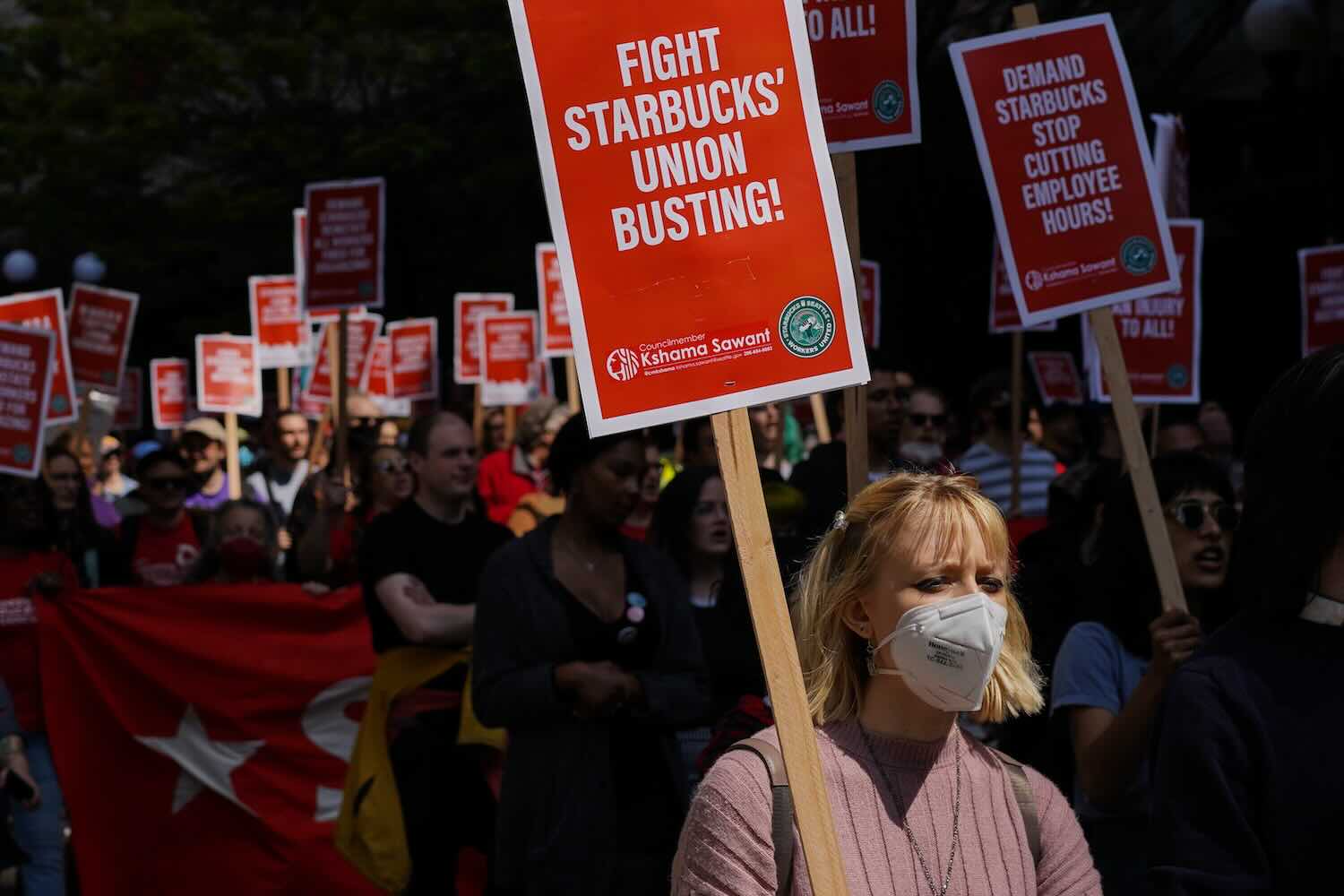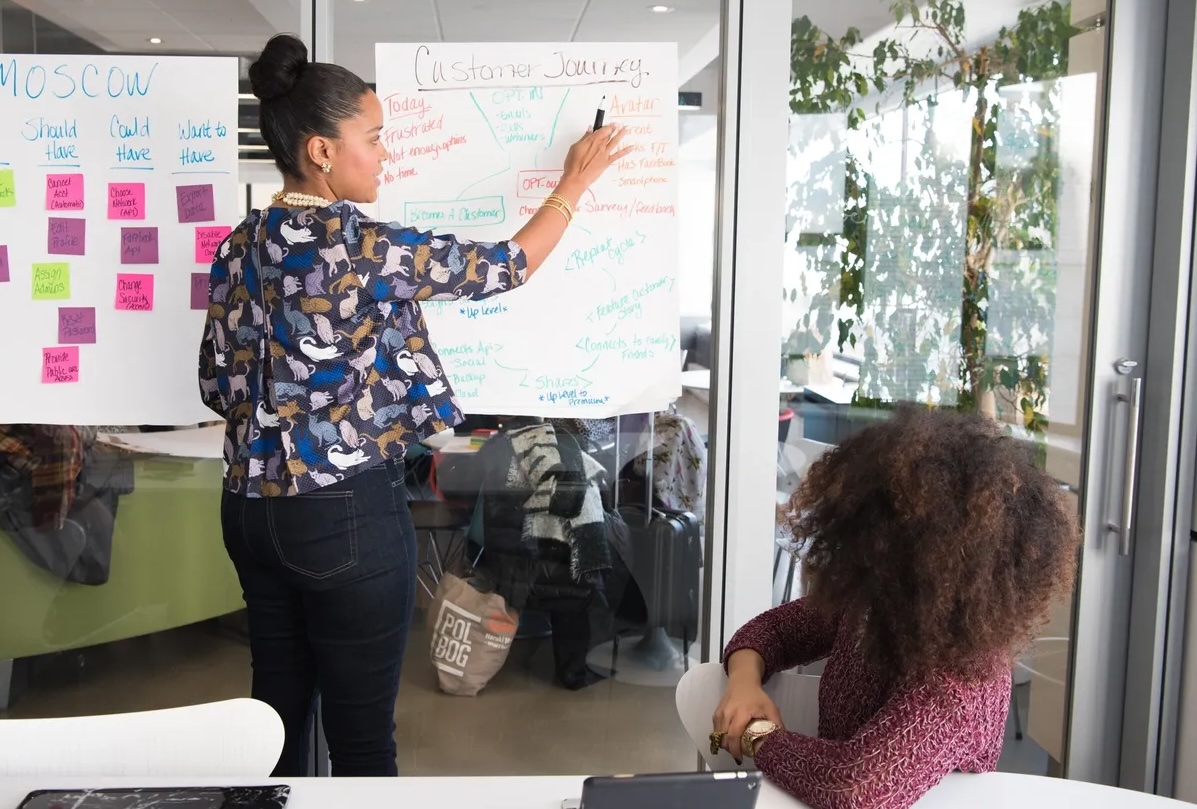Greetings, Agents of Impact!
Zoom into The Call. Today’s Agents of Impact Call No. 20 takes up the How of impact investing, along with Who, What, Why and Where. Patrick Briaud and Steven Godeke will launch Rockefeller Philanthropy Advisors’ new impact investing handbook, with help from Alabama Power Foundation’s Myla Calhoun, Ford Foundation’s Margot Brandenburg, Grove Foundation’s Rebekah Saul Butler, and Chris Earthman of the Aragona family office in Austin. They will explore how to build impact investing portfolios that work for all stakeholders. Join The Call today, Thursday, June 25, at 10am PT / 1pm ET / 6pm London. Haven’t RSVP’d yet? Zoom right in.
- Join the conversation. Share your thoughts before, during or after today’s call on ImpactAlpha’s #agents-of-impact Slack channel. Not yet on Slack? Sign up and click “channel browser” in the left column.
Featured: ImpactAlpha Original
COVID-recovery financing facilities aim to bridge capital gaps for small and growing businesses. About a quarter of small businesses will fail because of COVID-related disruptions. Another quarter will succeed, or even thrive. In emerging markets, a broad group of companies in the middle are treading water and desperately seeking lifelines. A survey by the Collaborative for Frontier Finance of 90 emerging markets fund managers and other capital providers found that 94% believe their portfolio companies need relief funding—specifically concessionary capital and debt. “There will be an accelerated culling of businesses because of COVID,” says the Collaborative’s Drew von Glahn. “But there’s also an opportunity to save businesses that would only go out of business because of COVID-related factors.” Three efforts to bridge the capital gaps:
- Liquidity and stabilization. The Collaborative is developing a relief fund targeting the portfolio companies of emerging markets’ capital providers, specifically those in sub-Saharan Africa (disclosure: the Collaborative for Frontier Finance is a sponsor of ImpactAlpha’s Capital on the Frontier series). The fund, which will be managed by impact investment firm Investisseurs & Partenaires, is looking to raise $150 million to originate low-cost loans directly to companies that had “solid business performance and financial positions” pre-COVID.
- Emerging markets. Calvert Impact Capital, Ground_Up Project and SDG Lab aim to raise $1 billion for their Impact Rescue Facility to support small and mid-sized enterprises in emerging markets. “If we don’t act soon, we will lose an entire generation of otherwise viable businesses,” write Brindusa Burrows of The Ground_Up Project, SDG Lab’s Nadia Isler and Jennifer Pryce of Calvert Impact Capital in “Rescue Facility targets $1 billion to support small enterprises in emerging markets.”
- Nutritious food financing. “Without proper financing options, businesses that do weather the storm will not be able to invest in activities that are key to building a better food system,” write Sofia Condes and Gabriel Quiros of the Global Alliance for Improved Nutrition and David Dewez of Incofin Investment Management. The partners are developing the Nutritious Food Financing Facility for small and mid-sized enterprises working in agriculture and food. See, “Building a better post-COVID food system with investments in small businesses in developing economies.”
- Better blending. As the fallout from the pandemic becomes clear, “investors are more cautious to allocate capital, and concessional capital providers will be even more selective,” writes Safia Gulamani of Convergence, who offers up “Five tips for attracting capital to blended finance vehicles.” Key takeaways: Balance innovation and scale. Do your homework on targeted investors and funders. Avoid buzzwords and jargon. Build a brain trust.
- Safeguarding impact through the crisis. SEAF (originally CARE’s Small Enterprise Assistance Funds) rounded up ImpactAlpha’s Agents of Impact Call No. 19 with IFC’s Neil Gregory, Symbiotics’ Safeya Zeitoun, Finance in Motion’s Sandra Abella, DEG’s Julian Frede and Bertrand Badré of Blue like an Orange Sustainable Capital. Check it out.
Keep reading, “COVID-recovery financing facilities aim to bridge capital gaps for small and growing businesses,” by Jessica Pothering on ImpactAlpha.
Dealflow: Follow the Money
Catalyst Fund announces new inclusive fintech cohort. The six startups in the global fintech accelerator’s latest cohort will each receive £80,000 ($100,000) in grant capital and business support and mentoring. The startups can help low-income customers build financial resilience in the face of the COVID crisis, said Catalyst Fund’s Maelis Carraro. They include Nigeria-based Flex Finance, which has developed a tool to help small- and micro- businesses establish a digital presence; Graviti, a Mexican company that enables unbanked families to flexibly pay for sustainable appliances; KarmaLife, a financial services suite for India’s growing population of gig workers; Mango Life, a Mexican startup that offers affordable health and life insurance plans; PayMeNow, a South African app that allows low-income workers to access part of their earned wages before payday; and WellaHealth, a Nigeria-based provider of affordable healthcare coverage for families.
- The organization, which is managed by BFA Global and sponsored by Rockefeller Philanthropy Advisors, received $15 million in January to serve an additional 30 startups over three years (see, “Catalyst Fund gets $15 million to accelerate financial inclusion in emerging markets”).
- More.
Loud Capital raises $10 million Pride Fund for LGBTQ entrepreneurs. The Columbus, Ohio-based fund is seeking out LGBTQ investors to invest in early-stage and growth companies led by LGBTQ entrepreneurs. A number of funds that launched in recent months target underrepresented founders, but less than 1% of venture funding goes to LGBTQ founders, according to Backstage Capital, which intentionally invests in LGBTQ founders. “We have an opportunity to make a significant impact and leave an enhanced legacy,” said Pride Fund’s Densil Porteous.
- Pride dealflow. The fund has already made five investments, including a tech startup, a fashion designer and a LGBTQ-focused restaurant group, according to PitchBook. It’s also working with Guerneville, Calif.-based Equality Vines, whose co-founder, Jim Obergefell, was the plaintiff in Obergefell v. Hodges, the 2015 Supreme Court case that led to the legalization of same-sex marriage.
- Share this post.
Billionaire investor Robert Smith launches nonprofit to relieve Black student debt. Smith paid off the student loans of Morehouse College’s class of 2019. He has now launched the Student Freedom Initiative to offer an alternative to high-interest loans for students at historically Black colleges and universities. Students will make repayments based on their income for up to 20 years after graduation, similar to income-share agreements (see, “Income-share funds expand college finance options for low-income students”). Jain Family Institute and the Education Finance Institute are among the partners.
Convergence funds the design of clean-energy finance facility in the Philippines. Clean energy advisory Allotrope will use the grant funding to design a $150 million blended finance vehicle to help electric cooperatives in the Philippines invest in and own renewable energy projects and reduce the country’s reliance on coal and diesel.
Signals: Ahead of the Curve
Life imitates art as hedge fund manager Jeff Ubben launches public-market impact fund. This season’s plotline on Billions, Showtime’s saga of wealth and corruption co-created by financial journalist Andrew Ross Sorkin, finds Wendy Rhoades (played by actress Maggie Siff) and Taylor Mason (Asia Kate Dillon) maneuvering to turn Bobby Axelrod’s (Damian Lewis) Axe Capital into an impact investment fund (maybe they’ve been reading ImpactAlpha). Now, off the screen, comes activist investor Jeff Ubben, the founder of ValueAct, a $16 billion activist hedge fund, who is turning coat on traditional finance in favor of impact investing in public markets. Ubben is leaving ValueAct to launch Inclusive Capital Partners with investor Lynn Forester de Rothschild, who also runs the Coalition for Inclusive Capitalism. The new fund will deploy ValueAct-like boardroom pressure to unlock long-term returns by driving social and environmental impact.
- Next big thing. “Finance is, like, done,” Ubben told the Financial Times. “Everybody’s bought everybody else with low-cost debt. Everybody’s maximized their margin. They’ve bought all their shares back… There’s nothing there. Every industry has about three players. Elizabeth Warren is right.” Pushing companies to tackle environmental and social issues, says Ubben, can create big returns.
- Impact delta. While a fresh look for Ubben, using shareholder leverage to influence corporate social and environmental practices is a long-tested model for firms like Boston Common Asset Managers and activist asset owners like members of the Interfaith Center on Corporate Responsibility. The ‘ESG engagement equities’ strategy at UBS uses shareholder engagement to help companies in emerging markets improve financial performance by improving labor standards, supply chain management, and environmental practices.
- Share this post.
Upstart Co-Lab investor coalition commits to shift capital to creatives. Upstart Co-Lab has been a chief evangelist of the power of art, design, culture, heritage and creativity to drive impact. The five-year-old nonprofit led by Laura Callanan has made the business case for investments in the creative economy, which in the U.S. amount to $878 billion. Now, 10 institutions and individuals with $1 billion in impact investing assets are joining an Upstart-led coalition with three-year commitments to moving capital to creatives. “Art and culture have been largely overlooked by impact investors before now,” said Darren Walker of Ford Foundation, which supports Upstart. “The creative economy has a critical role to play in an equitable COVID-19 economic recovery and needs values-aligned capital more than ever.”
- Creative capital. Members include Bonfils-Stanton Foundation, Creative Capital and Jessie Ball duPont Fund. The group also includes impact investor Lorrie Meyercord and art dealer Martha J. Fleischman. Upstart has helped mobilize more than $11 million in impact capital for the creative economy, including more than $6 million for LISC’s NYC Inclusive Creative Economy Fund. Upstart helped Souls Grown Deep Foundation develop a strategy to invest the bulk of its endowment in racial justice and creativity in nine southern states.
- Racial lens. A narrow focus on arts and culture fails to recognize the “creative economy as an on-ramp to wealth building for entrepreneurs, including women, people of color and others who benefit from lower barriers to entry to a sector of the economy more interested in merit than advanced degrees and pedigrees,” Callanan wrote in an earlier essay. Upstart has built a pipeline of more than 150 investment opportunities in sustainable food, ethical fashion, social impact media, creative places and other creative industries. A 2018 report identified more than 100 funds investing in the creative economy.
- Share this post.
Agents of Impact: Follow the Talent
Nishad Parmar is named senior partner and chief investment officer at Loud Capital… Mercy Corps Ventures seeks an advisor / program officer in Portland… NewSchools Venture Fund is recruiting an analyst for its diverse leaders strategy… The Public Interest Network is looking for Environment America Fellows… The deadline for asset managers and owners to participate in US SIF’s 2020 Survey on US Sustainable and Impact Investing Trends is June 30. Participate here… India’s Impact Investors Council is hosting “Indian Impact Investing Showcase: Looking back and looking forward,” on June 30.
Thank you for reading.
–June 25, 2020











